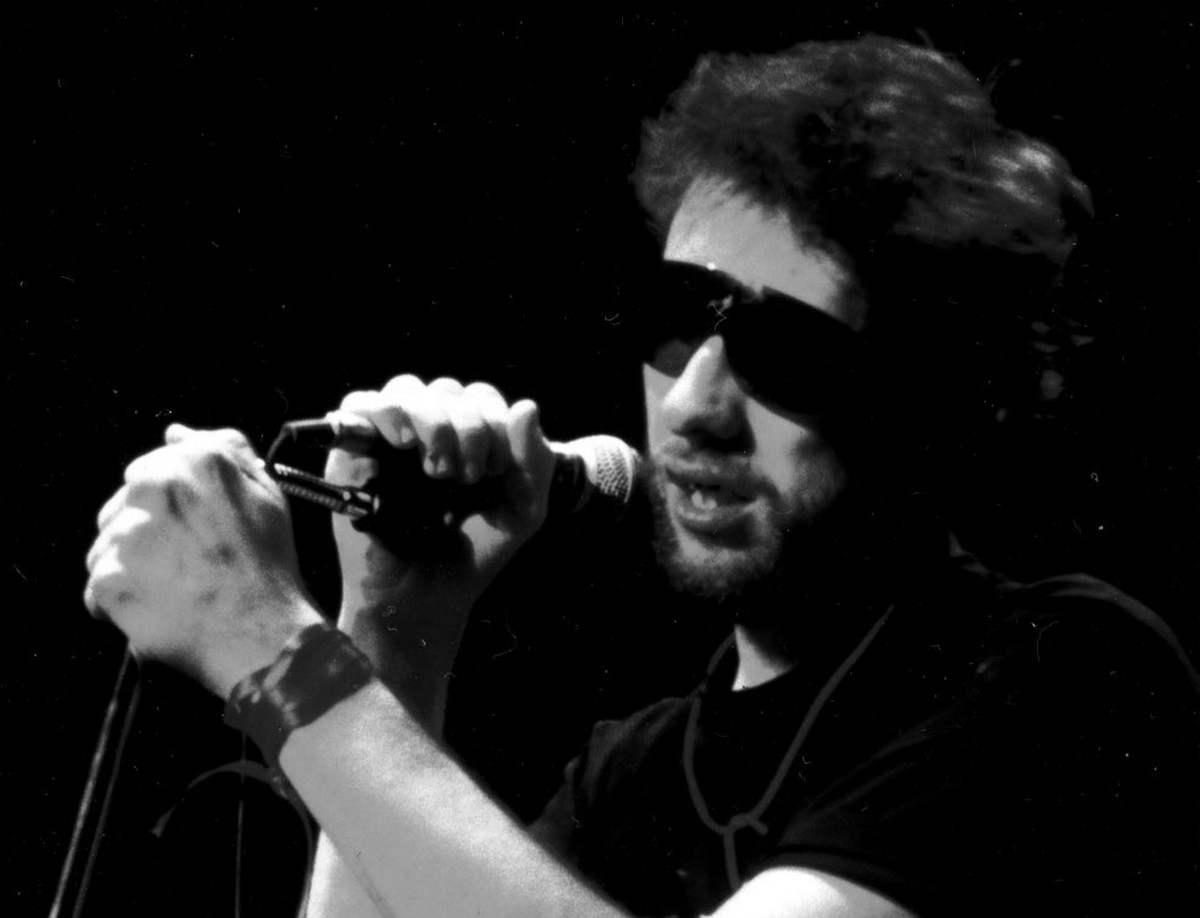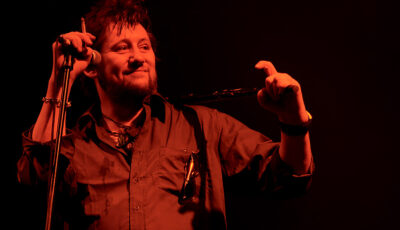With his atypical face, his thuggish and irreverent side, Shane MacGowan is undoubtedly one of Ireland’s must-see celebrities. But he’s best known for his musical talent and incredible voice in punk band The Pogues. With a career spanning more than 40 years, the Irish singer is now a much-loved figure in Ireland, acclaimed for his hits that have been heard on radio stations the world over!

Shane McGowan – Masao Nakagami – cc
Shane Patrick Lysaght MacGowan was born on December 25, 1957 in Kent, England, to two Irish parents. From his earliest months, Shane moved to Ireland and grew up for 6 years in the village of Carney, near Nenagh (Co. Tipperary).
From an early age, Shane was immersed in traditional Irish music. Her own mother sings and dances and never ceases to pass on her passion.
MacGowan began playing guitar and writing songs at the age of 15.
However, Shane returned to England to study at Holmewood House Preparatory School of Langton Green, Tunbridge Wells. He went on to music school, where he won a scholarship…
Unfortunately, he was expelled in 1971, in his second year, after being caught in possession of drugs.

Shane MacGowan – Javier Pedreira – cc
Everything changed for Shane in 1976. At the age of 19, he discovered the Sex Pistols, The Clash and many others. It was a real revelation for the young Brit: he spent his evenings discovering London punk bands, and attended every possible concert.
He then renamed himself Shane O’Hooligan and formed his own band: “The Nipple Erectors”, which he renamed “The Nips”. The group released a single in 1978, before breaking up shortly afterwards.
MacGowan then joined London punk rock band The Clash, but didn’t record any music with them.
In 1982, together with other musicians, he formed the group “The Pogues”. Shane MacGowan was inspired to write and compose, and became the band’s lead singer. The songs are a clever blend of traditional Irish music, fused with punk rock, creating a unique and innovative sound.
What’s more, MacGowan’s husky voice (the result of years of drinking and smoking), brings a real signature to the Pogues.
The band’s energetic live performances and poetic lyrics have made them a household name.
In 1984, the Pogues released their first album, “Red Roses for Me”. The album was well received by the critics and established the band as one of the most promising on the British music scene. Their second album, “Rum Sodomy & the Lash”, released in 1985, confirmed their success.
The Pogues achieved their greatest commercial success with their third album, “If I Should Fall from Grace with God”, released in 1988. The album reaches number 3 in the UK charts to critical acclaim.
Their fourth album, “Peace and Love”, released in 1989, was another commercial success. However, tensions within the group began to show, with drug and alcohol problems affecting MacGowan’s health…
Despite the success, Shane MacGowan is plagued by personal struggles. An alcoholic and drug addict, he was a regular on-stage excess. His stage performances are often uneven: drunk, he gives his all for the audience, but can be rough in his interpretations.
In the 1990s, his addictions became problematic for the band: his cocktails of amphetamines and acids, coupled with alcohol, worried the band members. Internal tensions were intense, and the Pogues’ productivity was affected, both on stage and in the studio.
He left the group in 1991 to form a new band, “Shane MacGowan and The Popes”, with whom he recorded new albums and toured extensively.
His debut album, “The Snake”, released in 1994, was well received by the critics. However, his solo career was marked by controversy, notably for his erratic behavior on stage and for racist remarks.
Despite these controversies, MacGowan continues to write and record music, collaborating with artists such as Nick Cave, Sinead O’Connor and Johnny Depp.
It was not until 10 years later, in 2001, that a more mature Shane MacGowan rejoined the Pogues for a sold-out tour. Buoyed by their success, the band began organizing “Christmas Tours” in 2004, where Shane’s interpretations seemed to blossom.
In 2010, Shane formed a new band called “The Shane Gang” with whom he recorded a new album. He took advantage of the opportunity to collaborate on a number of projects, paying a vibrant tribute to Serge Gainsbourg on the album “From Gainsbourg to Lulu”, with a rendition of “Sous le soleil exactement”.
In 2012, the Pogues embark on a tour celebrating the band’s 30th anniversary.
In 2018, Shane is organizing a concert to celebrate his 60th birthday. He invites some of the biggest names in music, including Sinéad O’Connor, Bono and Johnny Depp.
In 2020, Shane released an album entitled “Shane MacGowan and the Popes: Live at Montreux 1995”.
On Thursday November 30, 2023, Shane MacGowan’s wife announced the singer’s death on Instagram. Hospitalized for months with encephalitis, then admitted to intensive care, he had been battling for some time.
Although little information was leaked about his health problems, his addictions to alcohol and drugs probably weakened his condition.
He leaves behind a bereaved Ireland, which was particularly fond of his rebellious, irreverent attitude, which contrasted sharply with his poetic sensibility.
MacGowan’s most memorable songs include “Fairytale of New York” (1987), “The Irish Rover” (1987), “A Rainy Night in Soho” (1986) and “Dirty Old Town” (1985). “Fairytale of New York” is considered one of the greatest Christmas songs of all time and is regularly played on the radio during the holiday season.